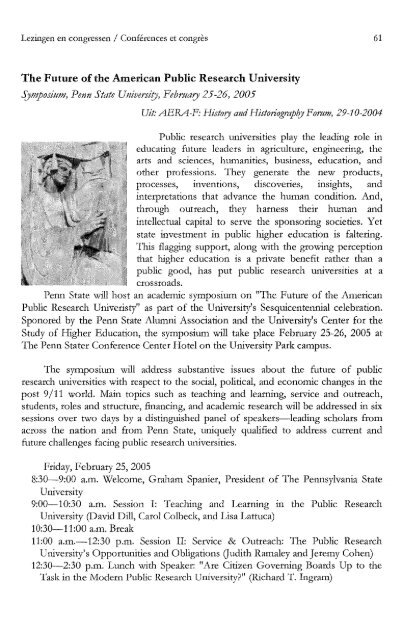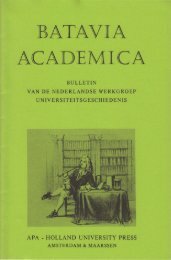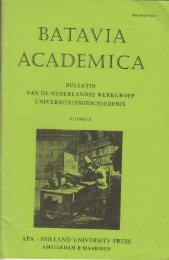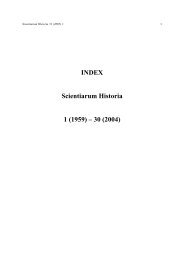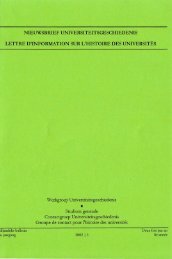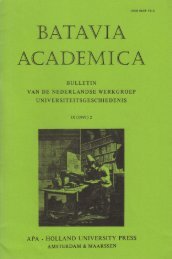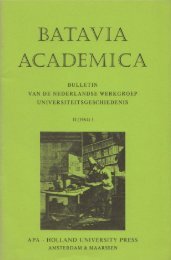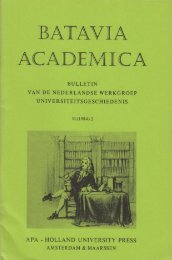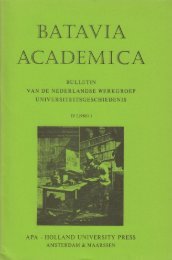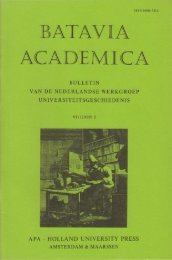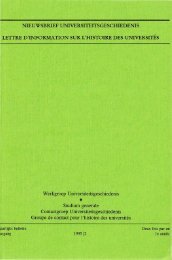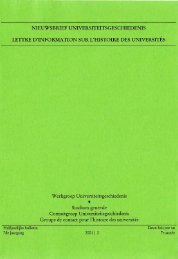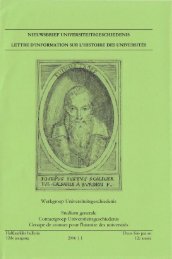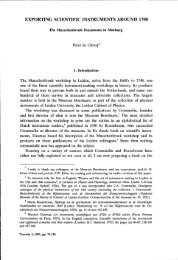Jaargang / Année 10, 2004, nr. 2 - Gewina
Jaargang / Année 10, 2004, nr. 2 - Gewina
Jaargang / Année 10, 2004, nr. 2 - Gewina
Create successful ePaper yourself
Turn your PDF publications into a flip-book with our unique Google optimized e-Paper software.
Lezingen en congressen / Conferences et congres 61<br />
The Future of the American Public Research University<br />
.ijmposium, Penn State University, February 25-26, 2005<br />
Uit: AERA-F: History and Histotiograpf?y Forum, 29-<strong>10</strong>-<strong>2004</strong><br />
Public research universities play the leading role in<br />
educating future leaders in agriculture, engineering, the<br />
arts and sciences, hmnanities, business, education, and<br />
other professions. They generate the new products,<br />
processes, inventions, discoveries, insights, and<br />
interpretations that advance the human condition. And,<br />
through outreach, they harness their hmnan and<br />
intellectual capital to serve the sponsoring societies. Yet<br />
state investment in public higher education is faltering.<br />
This flagging support, along with the growing perception<br />
that higher education is a private benefit rather than a<br />
public good, has put public research universities at a<br />
crossroads.<br />
Penn State will host an academic symposimn on "The Future of the American<br />
Public Research Univeristy" as part of the University's Sesquicentennial celebration.<br />
Sponored by the Penn State Almnni Association and the University's Center for the<br />
Study of Higher Education, the symposimn will take place February 25-26, 2005 at<br />
The Penn Stater Conference Center Hotel on the University Park campus.<br />
The symposimn will address substantive issues about the future of public<br />
research universities with respect to the social, political, and economic changes in the<br />
post 9/11 world. Main topics such as teaching and learning, service and outreach,<br />
students, roles and structure, financing, and academic research will be addressed in six<br />
sessions over two days by a distinguished panel of speakers-leading scholars from<br />
across the nation and from Penn State, uniquely qualified to address current and<br />
future challenges facing public research tmiversities.<br />
Friday, February 25, 2005<br />
8:30-9:00 a.m. Welcome, Graham Spanier, President of The Pennsylvania State<br />
University<br />
9:00-<strong>10</strong>:30 a.m. Session I: Teaching and Learning in the Public Research<br />
University (David Dill, Carol Colbeck, and Lisa Lattuca)<br />
<strong>10</strong>:30-11:00 a.m. Break<br />
11:00 a.m.-12:30 p.m. Session II: Service & Outreach: The Public Research<br />
University's Opportunities and Obligations Qudith Ramaley and Jeremy Cohen)<br />
12:30-2:30 p.m. Lunch with Speaker: "Are Citizen Governing Boards Up to the<br />
Task in the Modern Public Research University?" (RichardT. Ingram)


